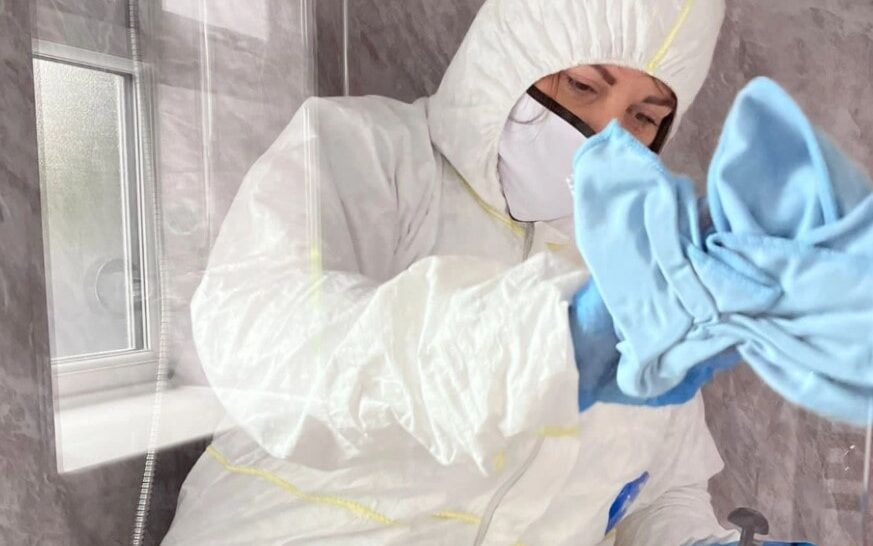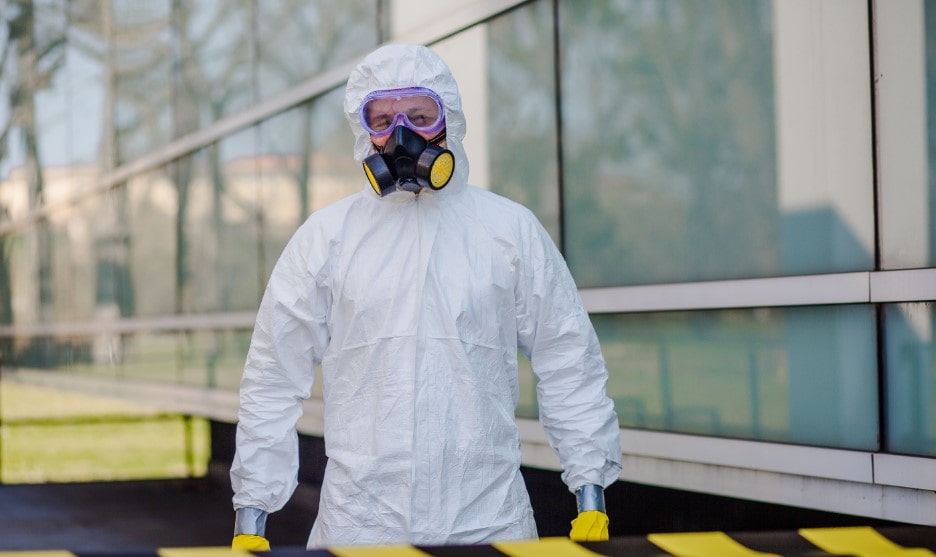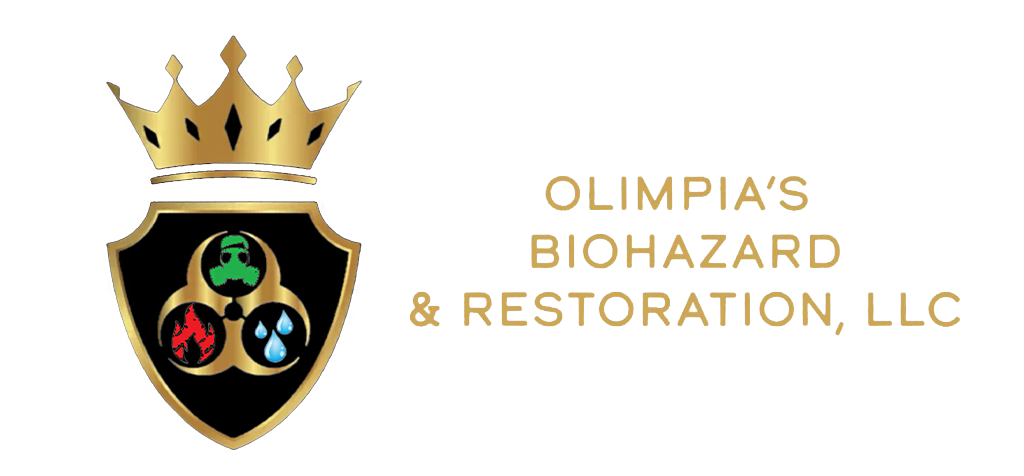Portland, Oregon, known for its vibrant community and commitment to education, occasionally faces the challenging task of cleaning up after crime scenes within its schools. When such incidents occur, a comprehensive and compassionate approach is essential to ensure the safety and well-being of students, staff, and the wider school community. This guide delves into the intricacies of cleaning up after crime scenes in Portland’s educational institutions. It explores the unique challenges posed by these environments, legal and ethical considerations, safety protocols, and the critical role of psychological support. Additionally, it underscores the importance of restoration and prevention measures to safeguard the learning environment.
Managing Crime Scene Cleanup in Portland Schools
This guide by Olimpia’s Biohazard & Restoration LLC navigates the complexities of crime scene cleanup within the unique context of Portland’s educational institutions. We delve into the challenges, legal and ethical considerations, safety protocols, and the pivotal role of psychological support, all working together to restore a secure and nurturing learning environment.


Addressing the Aftermath: Crime Scene Cleanup in Portland Schools:
When a crime occurs within a school in Portland, the aftermath can be emotionally and physically challenging for all involved. Properly addressing the aftermath begins with understanding the unique challenges that school environments pose for crime scene cleanup. Unlike other settings, schools are filled with minors, and the safety and emotional well-being of students and staff are of utmost concern. This section serves as an introduction to the broader discussion, emphasizing the need for a specialized approach that takes into account the sensitivities of educational spaces while ensuring effective cleanup.
Understanding the Unique Challenges of School Crime Scene Cleanup:
School crime scene cleanup presents distinct challenges that require careful consideration. It’s not just about cleaning up physical remnants but also about providing support to a traumatized community. Educational settings demand a high level of sensitivity due to the presence of minors who may have witnessed or been directly affected by the incident. Legal and ethical concerns are heightened in school environments, making it essential to navigate these aspects with care.
The Importance of Swift Response: Timely Cleanup in Educational Settings:
In the wake of a crime, time is of the essence. Delayed cleanup can exacerbate emotional distress, expose individuals to health risks, and disrupt the school’s routine. This section underscores the critical need for a swift response in school crime scene cleanup. It discusses the psychological impact of crime scenes on students and staff and highlights how a timely cleanup can contribute to a sense of security and normalcy.
Ensuring Safety First: Protecting Students and Staff During Cleanup:
Safety is paramount during school crime scene cleanup. This section delves into the safety protocols and measures that must be in place to protect the well-being of students and staff. It emphasizes the importance of minimizing disruption to the school’s daily activities while ensuring that cleanup professionals work in a safe and controlled manner.
Legal and Ethical Considerations: Compliance in School Crime Scene Cleanup:
Compliance with legal and ethical standards is essential when dealing with crime scene cleanup in educational settings. This section explores the regulations that govern such cleanups, including privacy laws that protect the identities and sensitive information of students. It also addresses ethical considerations such as obtaining consent and maintaining confidentiality.
Managing Bloodborne Pathogens: A Critical Aspect of Cleanup Protocols:
Crime scenes often involve the potential presence of bloodborne pathogens, which pose significant health risks. This section outlines the precautions and procedures required to manage bloodborne pathogens safely. It highlights the role of professional cleanup services in handling biohazardous materials and ensuring that contamination risks are minimized.


The Cleanup Process: Step-by-Step Procedures for School Environments:
School crime scene cleanup follows a structured process to ensure thorough and effective restoration. This section provides a comprehensive overview of the step-by-step procedures involved. It covers initial assessment, containment measures, decontamination protocols, and the subsequent restoration of affected areas. Understanding this process is vital for both cleanup professionals and school administrators.
Restoring the Learning Environment: Repairing and Renovating School Spaces:
Cleaning is just one aspect of school crime scene cleanup. Equally important is the restoration of school spaces to their pre-incident condition. This section discusses the repair and renovation aspects of cleanup, which may involve tasks such as repairing damaged structures, repainting, and replacing furnishings. The goal is to create a safe, functional, and welcoming environment for students and staff.
Psychological Support: Addressing the Emotional Impact on Students and Staff:
Crime scenes in schools can have a profound emotional impact on students, staff, and the wider community. This section highlights the need for psychological support services, including counseling and trauma assistance, to help individuals cope with the aftermath of traumatic events. It emphasizes that emotional healing is an integral part of the recovery process.
Preventing Future Incidents: Strategies for School Safety and Security:
To protect the school community, it’s crucial to implement strategies that prevent future incidents. This section explores various measures, such as enhancing security protocols, conducting risk assessments, and promoting a culture of safety within the school. Prevention is not only proactive but also serves as a means of safeguarding students and staff from potential harm in the future.
FAQs:
FAQ 1: Who is responsible for initiating the cleanup process after a crime scene in a Portland school?
Answer: The responsibility for initiating the cleanup process typically falls on the school’s administration or facilities management. They should contact professional crime scene cleanup services promptly to assess the situation and begin cleanup procedures to ensure the safety and well-being of students and staff.
FAQ 2: How long does it usually take to complete the cleanup of a crime scene in a Portland school?
Answer: The duration of cleanup can vary significantly depending on the nature of the crime, the extent of contamination, and the scope of restoration needed. However, professional cleanup teams prioritize swift and thorough cleanup to minimize disruptions and restore a safe learning environment as quickly as possible.
FAQ 3: Are there any financial assistance or insurance options available to cover the costs of crime scene cleanup in Portland schools?
Answer: In many cases, the costs of crime scene cleanup may be covered by insurance policies held by the school or district. It’s essential to check with the school’s insurance provider and explore available financial assistance options to help alleviate the financial burden associated with cleanup efforts.
Conclusion:
Cleaning up after crime scenes in Portland schools is a complex and sensitive undertaking. It demands not only effective procedures but also a deep commitment to the well-being of students and staff. Addressing the aftermath swiftly, while ensuring safety, legal compliance, and psychological support, is paramount. Understanding the legal aspects of crime scene cleanup is imperative, particularly in the context of cleaning up after crime scenes in schools, as adherence to regulations and protocols is essential to ensure a safe and compliant restoration process. Crime scene cleanup professionals play a vital role in restoring the learning environment to its previous state, promoting normalcy and healing. Moreover, prevention measures must be integrated to protect the school community from future incidents. By navigating the intricate process of school crime scene cleanup with compassion, professionalism, and vigilance, we contribute to the safety and resilience of Portland’s educational institutions.
